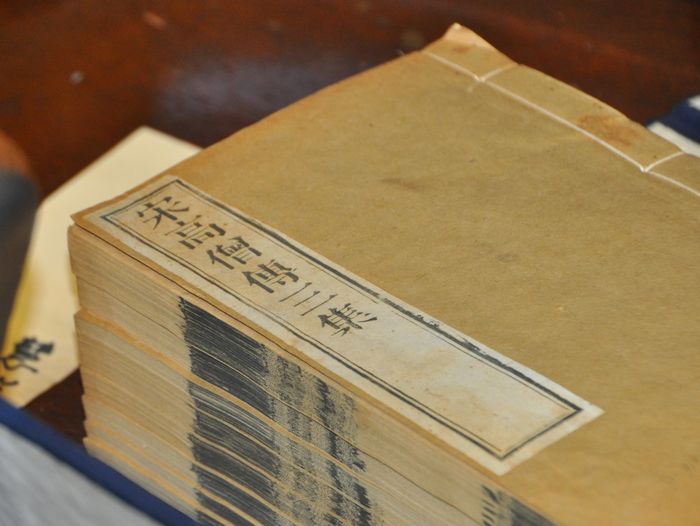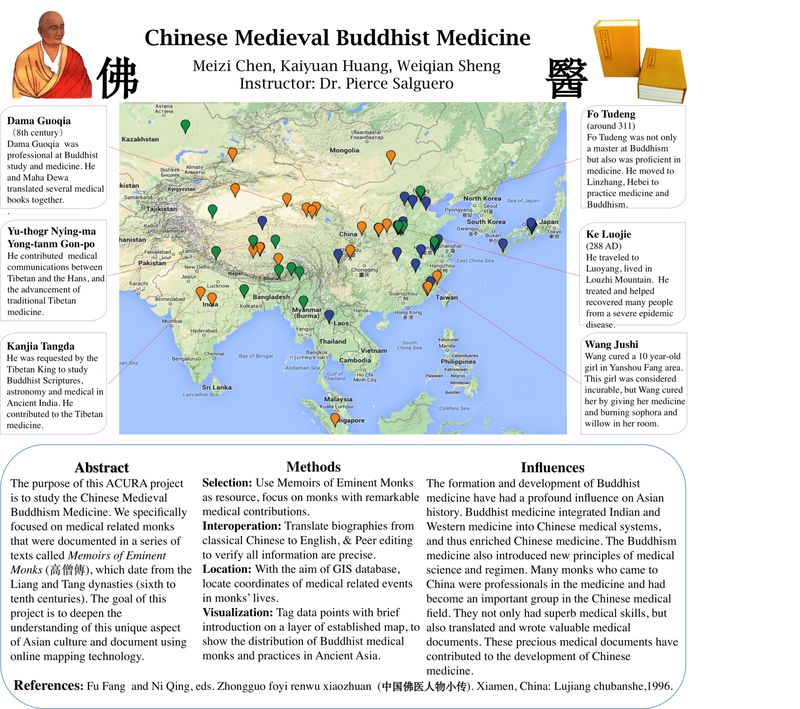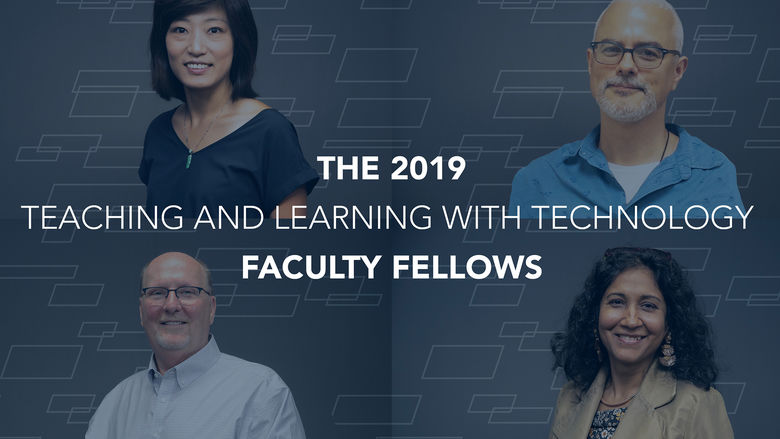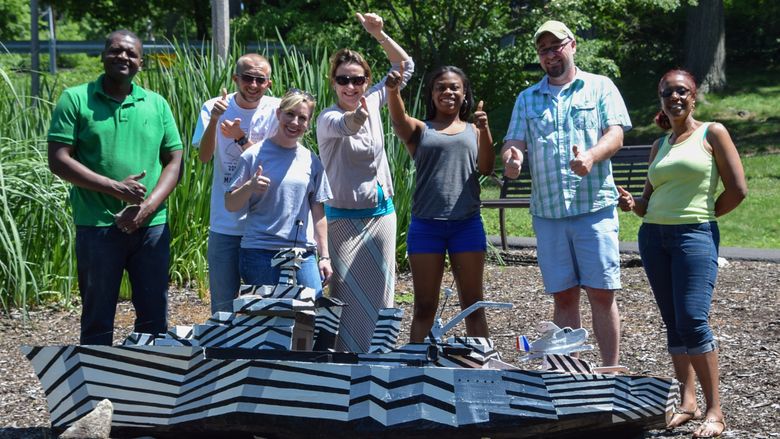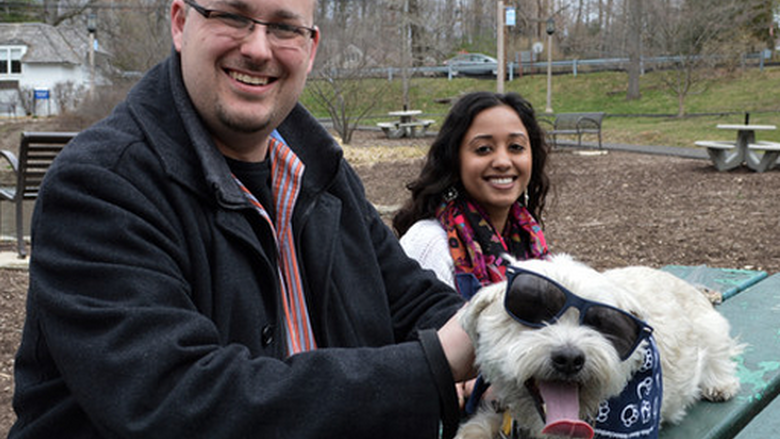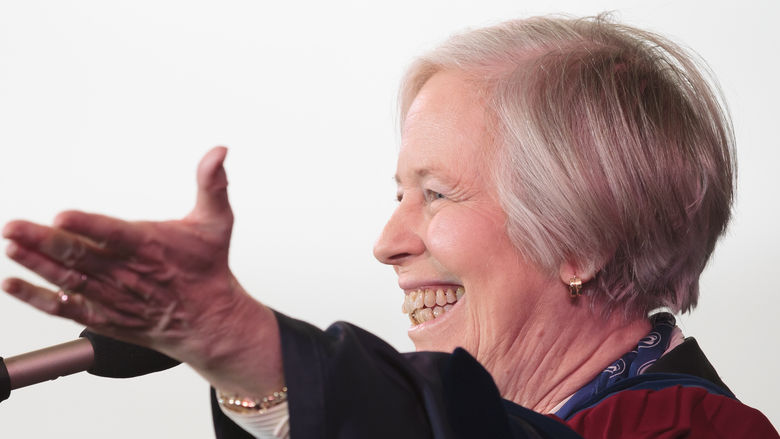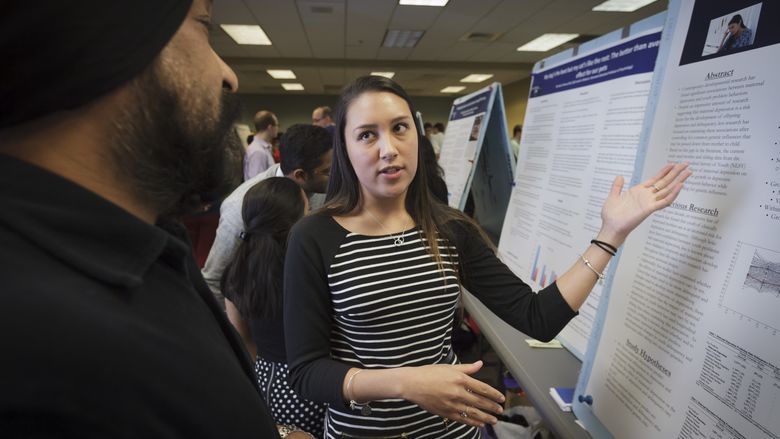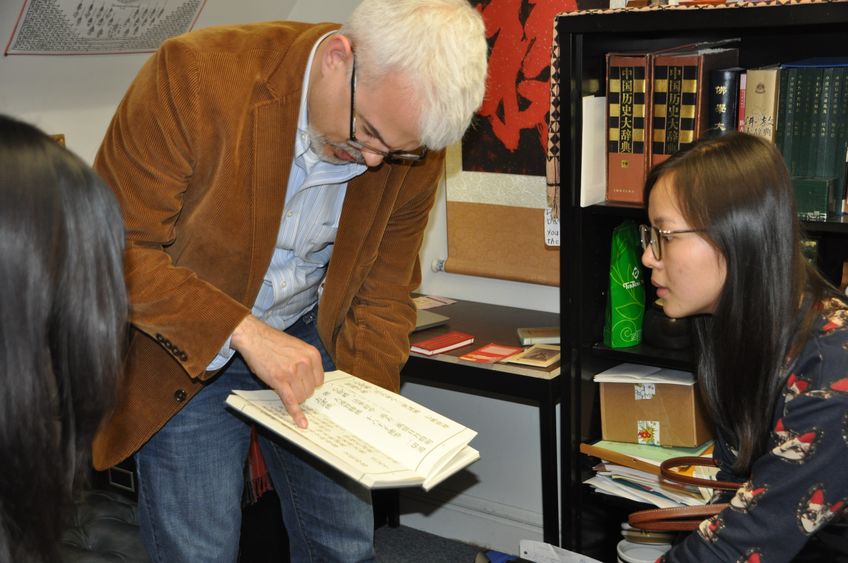
Pierce Salguero and student Weiqian Sheng examine an ancient text for an Abington undergraduate research project.
ABINGTON, Pa. -- Three Penn State Abington student researchers embarked on a journey through medieval China this year, tracing the healing paths of six Buddhist medical monks by painstakingly translating sacred ancient texts. Their goal is to deepen the understanding of this unique aspect of Asian culture while documenting and visualizing the data through mapping technology.
Meizi Chen, Kaiyuan Huang and Weiqian Sheng teamed up with mentor C. Pierce Salguero, assistant professor of Asian history and religious studies, for this Abington College Undergraduate Research Activities (ACURA) project.
The women are international students, and although Chinese is their first language, translating the texts was a challenge. The memoirs they examined were written in classic Chinese, sometimes in Sanskrit, and were often technical.
"The language also included some specific Buddhist terminology nuances, and these students aren't Buddhists," Salguero explained.
The trio focused on six monks whose remarkable medical contributions were documented in a series of sacred texts called "Memoirs of Eminent Monks (高僧傳)," written between the sixth and 10th centuries. They translated the biographies into English, working individually and as a team, and peer editing along the way to verify the information.
Using a geographic information database based in Taiwan, they pinpointed coordinates of medical-related events in the monks lives. Frequently, the names of towns or regions changed over centuries, and the students turned into detectives, tracking down locations sometimes using paper maps.
After months of intense work, they visualized the movements and connections of these medical monks and practices in ancient Asia, discovering clusters of activity from data.
The students plan to present their research to the campus community at the annual ACURA poster fair next week.
The formation and development of Buddhist medicine had a profound influence on Asian history, Salguero said. Buddhist medicine integrated Indian and Western medicine into Chinese medical systems and also introduced new principles of medical science and regimen.
Many monks were professionals in medicine and became an important group in the Chinese medical field. They had superb medical skills and also translated and wrote valuable medical documents.
Learn more about undergraduate research at Abington: http://www.abington.psu.edu/academics/undergraduate-research
Learn more about Salguero's areas of study: http://www.abington.psu.edu/academics/faculty/dr-c-pierce-salguero
